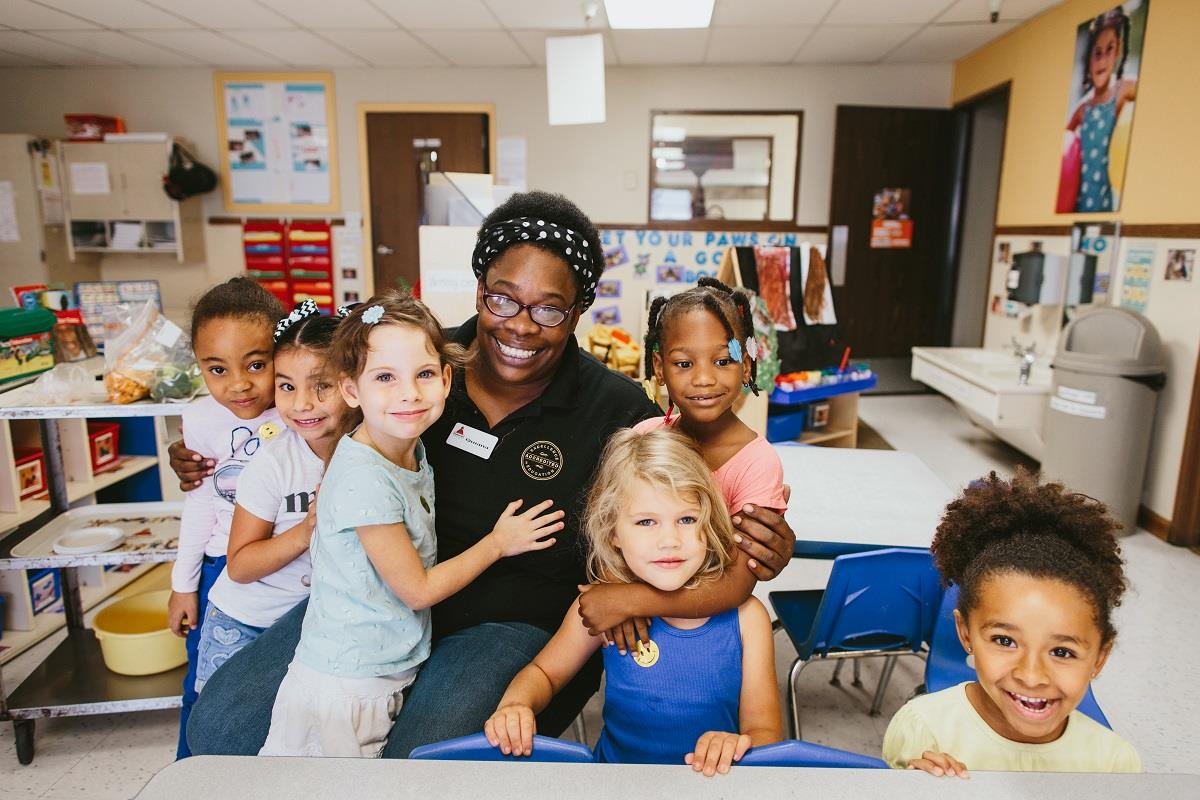Motivate with Love! How Positivity Makes Kids Better Learners

“I always tell my children, I know you can do it,” says award-winning KinderCare kindergarten teacher Quiana Smith. “Every child is different—and every child is more than capable.”
You might call Smith a positivity specialist. Her unwavering belief in the abilities and potential of every single child means that kids in her classroom have a positive attitude toward school, learning—and themselves.
That’s no small thing: Research shows that when children feel good about themselves and their own abilities, they learn better. In other words, by fostering a sense of love and belonging in children, Smith also helps them reach their learning potential.
She also has a message for parents: “You can use positivity to get the very best out of any child,” says Smith, herself a mom of four. Take these six positive, powerful ideas from Smith to help your own young children achieve their best!
1. Say, “I believe in you.”
For young children, every day is a new opportunity to learn—but sometimes children are uncertain about their own abilities. “Sometimes they’re not sure if they should try something new or even if they want to try something new,” says Smith. “Just regularly hearing those few words makes a huge difference for children who might feel a little reluctant.”
2. “I don’t know” is a wonderful answer.
Taking risks, trying new things, and making mistakes are crucial to the learning process. “I always tell my children that it’s okay if you don’t know the answer and it’s okay to make a mistake,” Smith says. “I say, You don’t know!? Wonderful! That’s something new you get to learn!”
3. Speak heart-to-heart (and face-to-face).
Research shows that when children feel accepted, they have a more positive attitude about learning—and they’re more likely to try again at a task when they don’t succeed the first time. Eye contact, using gentle words, physically getting down to a child’s level, and connecting emotionally are all simple ways to give children a sense of real belonging. “When children may be experiencing frustration or difficulty, I offer kindness, connection, and encouragement,” says Smith. “I’m showing them that I will be here every step of the way and I’m not going to let them give up!”
4. Patience is a parent’s superpower.
Not all children respond to the same teaching or parenting approach. With some children, the best way to help them be successful is to back off and simply wait until they’re ready. “Sometimes you don’t want to push. But I always tell children, I will be here for you when you’re ready to try,” Smith says. “My own son is on the autism spectrum, and it took me many years to see that I needed to follow his lead. The potty-training, the talking, the writing: I pushed and he pushed right back! Eventually, I learned to just stop and wait, because this was his learning process.”
5. We can all learn something from each other.
At around age five, children become more aware of their own strengths and weaknesses and may begin comparing themselves to their peers. It’s critical at this stage to frame everyone’s differing abilities in a positive way so that children don’t see themselves (or others) as less worthy. “For example, I have one child who is learning to tie shoes and another who could care less about tying shoes, but you might hear statements from children like, I can tie my shoe and you can’t,” says Smith. “I try to reframe those statements in a positive way: She has shoes that don’t need to be tied. And that’s okay. My message is that we can all learn from each other—and we can all learn to respect each other and respectfully express the differences we have.”




.jpg?la=en&h=800&w=1200&hash=799F5BD6E84A71FB0D1C8E657FE7F226)
